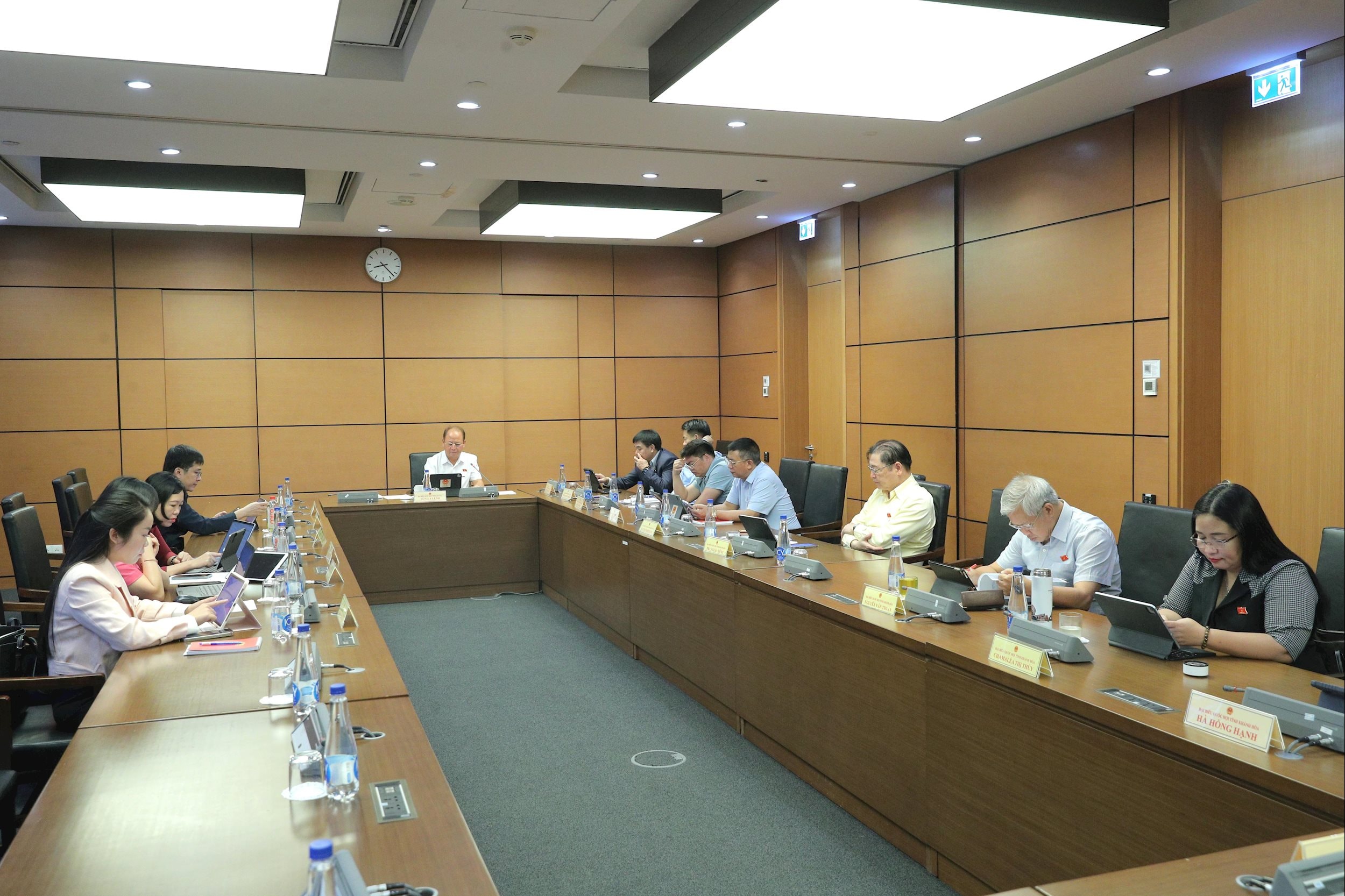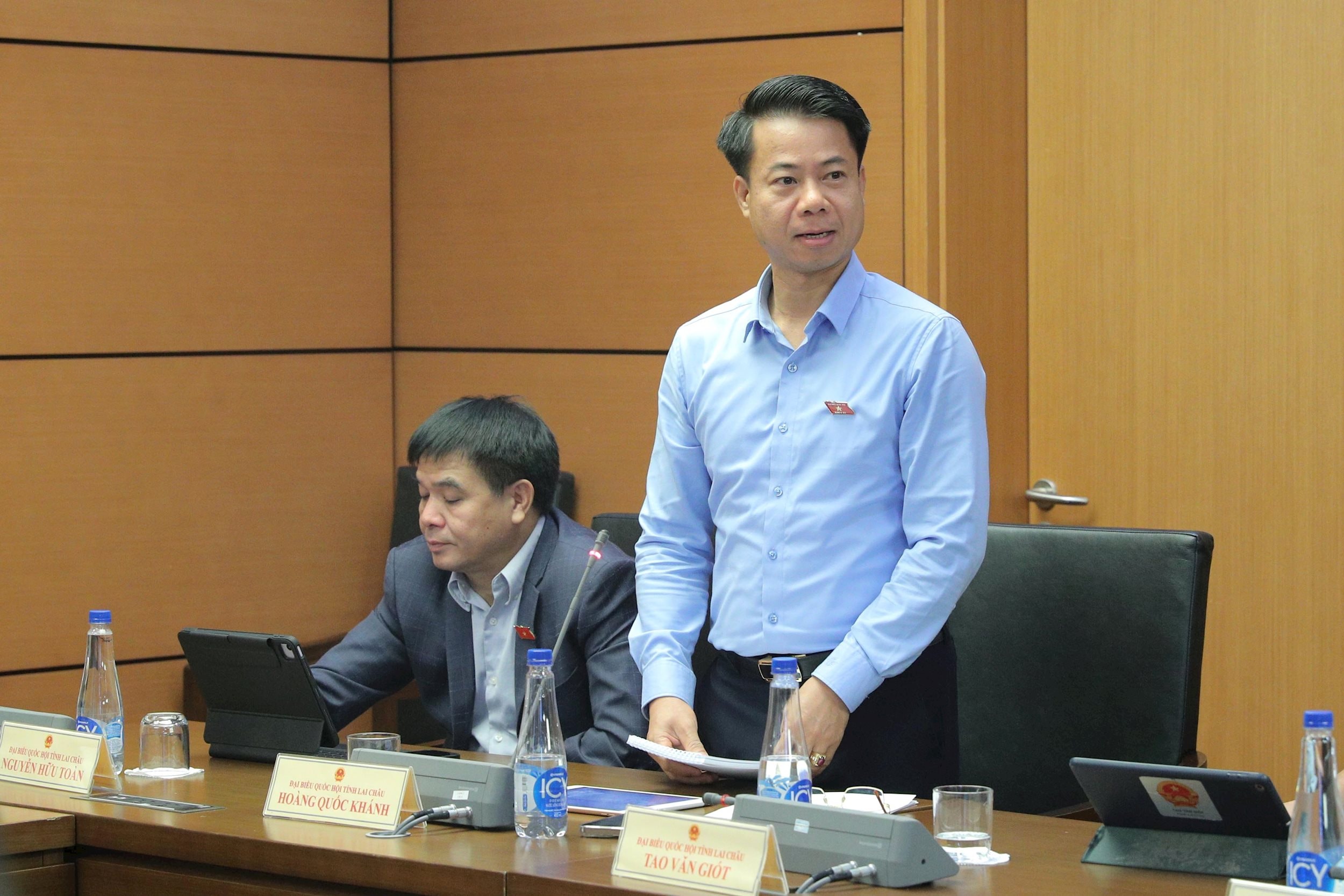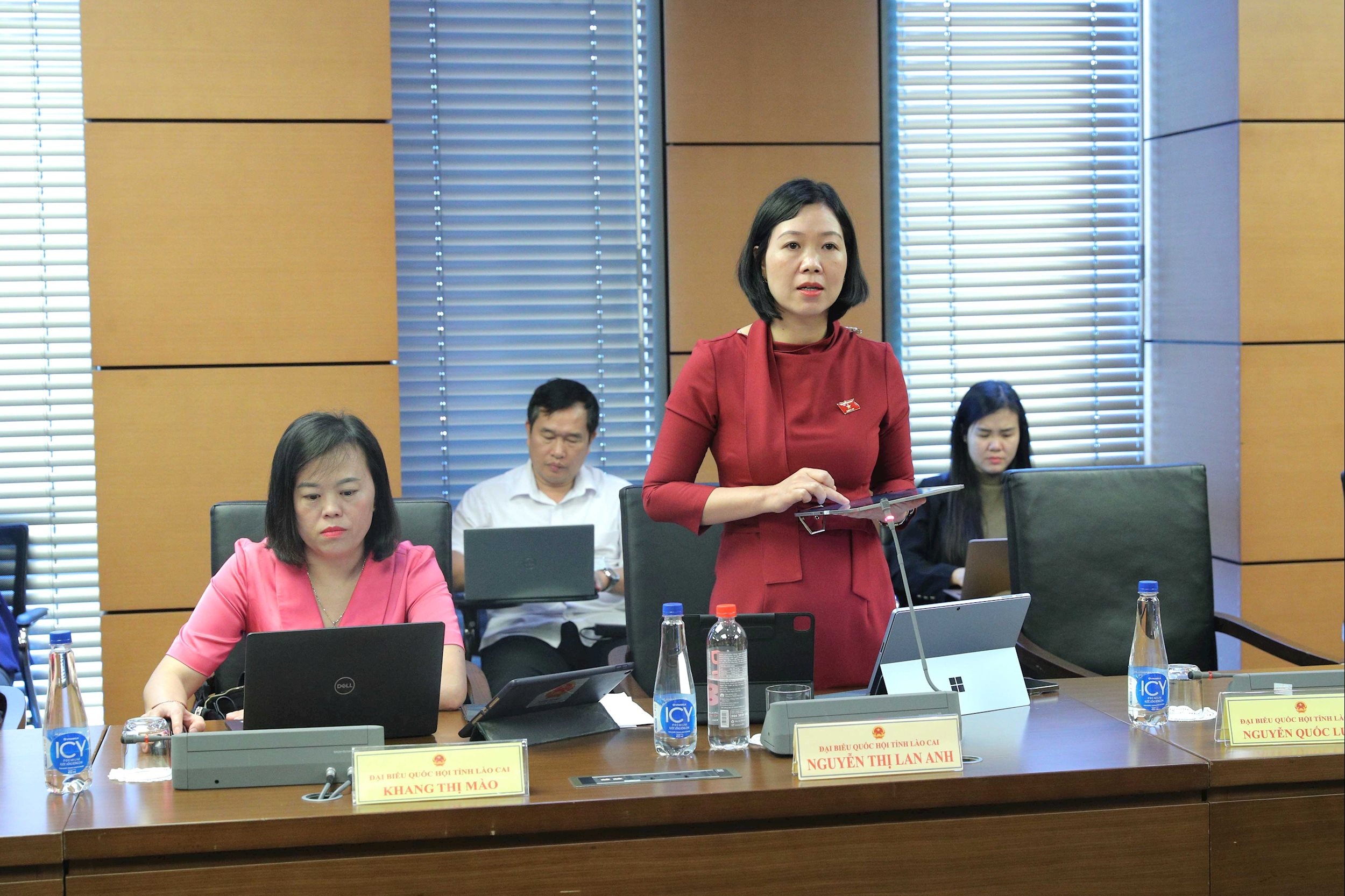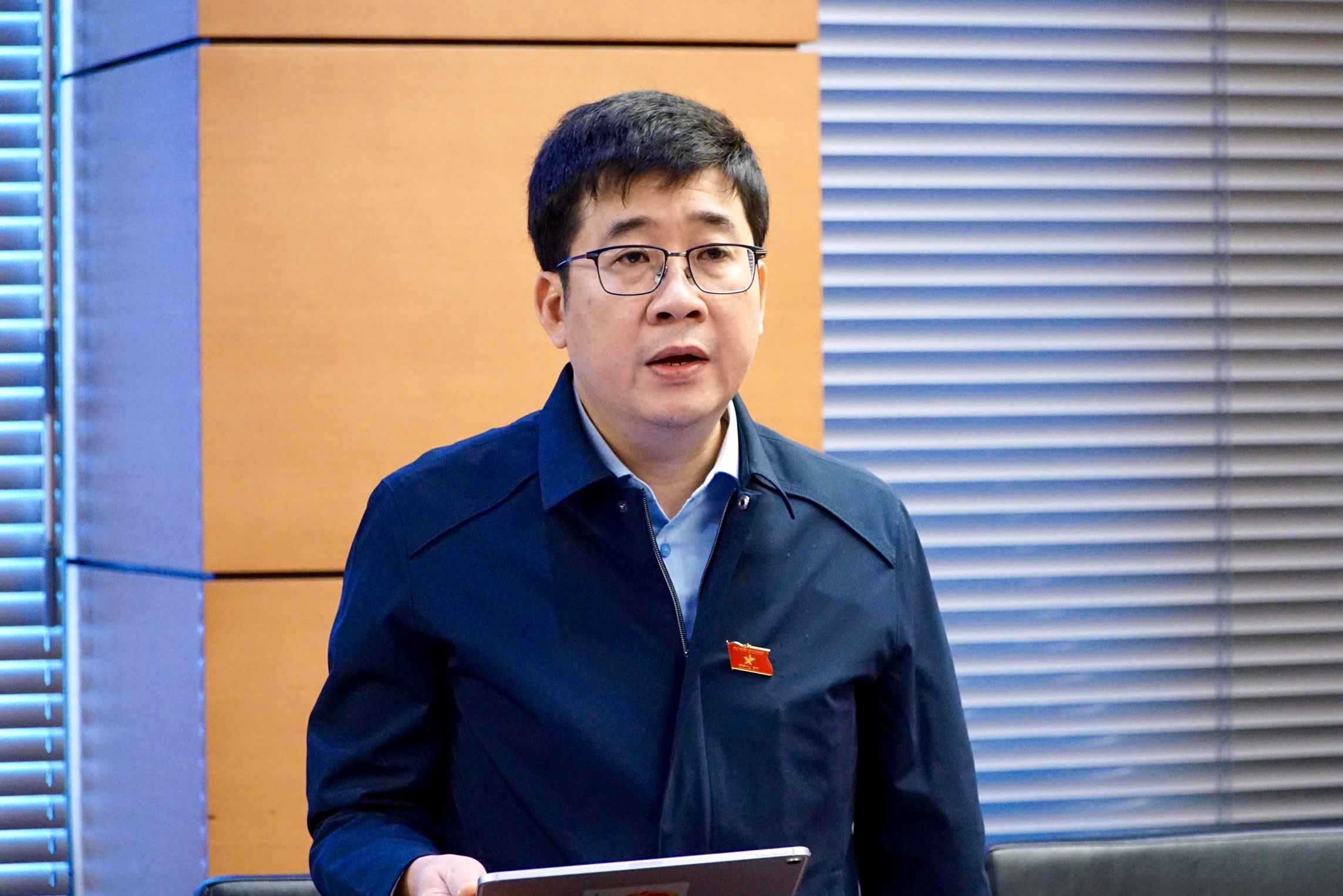
Continuing the Tenth Session, on the morning of November 6th, the National Assembly held group discussions on: the draft Law on Construction (amended); the draft Law amending and supplementing a number of articles of the Law on Geology and Minerals; and the draft Law amending and supplementing a number of articles of laws in the fields of agriculture and environment.
Clarifying the criteria for selecting rare earth exploration companies.
During the discussion of the draft Law amending and supplementing a number of articles of the Law on Geology and Minerals, the delegates in Group 4 (comprising the National Assembly delegations of Khanh Hoa, Lai Chau, and Lao Cai provinces) basically agreed with the necessity of enacting this law, as presented in the Government's submission and the verification report of the Committee on Science , Technology and Environment.
According to National Assembly Deputy Hoang Quoc Khanh (Lai Chau), the draft law adding Chapter VIIa on state management of geology and rare earth minerals is very necessary, because this is one of the special types of resources in the world and therefore requires special policies.

Citing the situation in Lai Chau, the delegate informed that the province has scattered reserves of rare earth elements in the area formerly belonging to Tam Duong district, spanning 60 hectares, making management very difficult; the local government also faces financial constraints for this work.
The draft law states: Rare earth mineral reserve and protection areas are areas containing rare earth minerals that have not yet been exploited, need to be protected, and are determined based on the results of geological surveys of minerals and the results of rare earth mineral exploration .
"This regulation is still unclear regarding the policy for protecting rare earth elements." Emphasizing this point, the representative suggested that Clause 6, Article 85a should be amended to state: The State has a policy of stockpiling, regulating, and ensuring funding for the protection of rare earth elements, and regulating the export and import of rare earth elements in each period in accordance with the goals of sustainable socio-economic development, instead of merely stating "The State has a policy of stockpiling rare earth elements, regulating export activities..." as in the draft Law.
According to the delegate, if the "funding for the protection of rare earth elements" is not explicitly stated and is instead delegated to local authorities, it will be very difficult, as rare earth elements are spread across vast areas and require funding for fencing. "That should be budget allocated from the central government to the local authorities," the delegate suggested.

Also related to the regulations on rare earth minerals in the draft Law, National Assembly Deputy Nguyen Thi Lan Anh (Lao Cai) agreed with the regulation "not to export raw rare earth minerals" (Clause 3, Article 85a).
Delegates noted that the government needs to establish strict regulations on the concept and classification of rare earth elements, because each region has different levels of rare earth elements, and appropriate exploration, mining, and processing technologies are necessary to maximize the utilization of rare earth elements.
The regulation prohibiting the export of raw rare earth elements is also consistent with current practices in many countries, as this is a strategic technology that needs to be mastered.
Clause 3, Article 85a also stipulates that only enterprises and organizations designated or authorized by the State have the right to explore, exploit, process, and utilize rare earth elements.
Agreeing with this regulation because rare earth exploration is a national secret and therefore cannot be delegated indiscriminately as it would be difficult to manage, delegate Nguyen Thi Lan Anh suggested that clear criteria should be defined for selecting and designating units permitted to conduct exploration.
"It could be a state-owned or private enterprise, so what are the criteria for determining which unit ensures national security and has the capacity for exploration? We need clear and strict regulations on these criteria," the representative proposed.
Furthermore, according to delegate Nguyen Thi Lan Anh, the deep processing of rare earth elements must be linked to the development of a modern industrial ecosystem to enhance the domestic value chain and ensure self-reliance in implementing the national strategy on rare earth elements, which is essential.
However, deep processing requires the use of chemicals, so even with advanced technology, it still has an impact on the environment. Therefore, regulations are needed to ensure that deep processing of rare earth elements is linked to environmental protection and post-processing environmental remediation.
Establish a strategic stockpile of common building materials from sea sand.
According to National Assembly Deputy Nguyen Thanh Trung (Lao Cai), amending and supplementing several articles of the Law on Geology and Minerals aims to meet urgent requirements in state management and resolve practical difficulties, especially issues related to the licensing mechanism, exploitation, and use of minerals as common construction materials and leveling materials for the construction of important projects and works.

The delegate added that the Law on Geology and Minerals No. 54/2024/QH15, effective from July 1, 2025, specifically the regulations on Group IV minerals effective from January 15, 2025, have added many new and stricter regulations on the management and exploitation of sea sand for construction materials, particularly focusing on strict control and promoting the assessment of reserves to serve key projects.
Citing the practical experience of inspecting and monitoring several key road transport projects, especially in the Mekong Delta region, the representative stated that specialized agencies and contractors all agree that using sea sand meets technical and environmental requirements, ensures a reliable supply of materials, guarantees construction time, and reduces the current high price of construction sand.
To address the difficulties caused by the shortage of sand for key national transportation projects and to stabilize construction material prices, businesses and contractors have proposed several solutions, specifically the need to explore, assess, and exploit sand offshore in Vietnamese waters and to build strategic storage facilities for this product.
In order to expedite the exploitation of sea sand to address the sand shortage for infrastructure development and stabilize the price of construction sand nationwide, the delegates proposed that the Government assign the Ministry of Agriculture and Environment, the Ministry of Construction, and other relevant agencies to study and allow the assessment of the potential of sea sand as a construction material in Vietnamese waters through basic geological surveys of mineral resources conducted by organizations and individuals. Once the survey results are available, they will be transferred to the state management agency to proceed with offshore sand exploitation, and simultaneously, the construction of a strategic warehouse for common construction materials from sea sand will be implemented.
"Implementing the above measures will ensure the long-term stabilization of construction and leveling sand prices, while definitively resolving the shortage of sand for infrastructure development projects," said delegate Nguyen Thanh Trung.
Source: https://daibieunhandan.vn/bao-dam-kinh-phi-de-bao-ve-dat-hiem-10394611.html




![[Photo] The General Secretary presents the title of Hero of the People's Armed Forces to the Navy.](https://vphoto.vietnam.vn/thumb/1200x675/vietnam/resource/IMAGE/2026/02/28/1772251730336_vna-potal-tong-bi-thu-to-lam-du-va-trao-danh-hieu-anh-hung-llvt-nhan-dan-cho-quan-chung-hai-quan-8612073-jpg.webp)









































































































Comment (0)